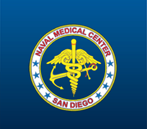Integrated Eye Tracking and Neural Monitoring for TBI: Optimization
| Status: | Recruiting |
|---|---|
| Conditions: | Neurology |
| Therapuetic Areas: | Neurology |
| Healthy: | No |
| Age Range: | 18 - 55 |
| Updated: | 3/15/2019 |
| Start Date: | July 7, 2017 |
| End Date: | April 24, 2020 |
| Contact: | Mark Ettenhofer, Ph.D. |
| Email: | FUSION@USUHS.EDU |
| Phone: | 301-259-1403 |
Integrated Eye Tracking and Neural Monitoring for Enhanced Assessment of Mild TBI: Clinical Optimization Study
Traumatic brain injury (TBI) is one of the most frequent injuries affecting service members.
Unfortunately, current neurocognitive assessment tools are unable to reliably detect mild TBI
more than a few days post- injury. Therefore, development of advanced systems for assessment
and diagnosis of TBI are a top priority within Department of Defense. This project aims to
evaluate a combined electroencephalography (EEG) and eye tracking system capable of assessing
compromised cognitive function stemming from TBI, with the goal of enhancing operational
readiness and aiding in diagnosis, improving health care and rehabilitation for affected
military personnel.
Unfortunately, current neurocognitive assessment tools are unable to reliably detect mild TBI
more than a few days post- injury. Therefore, development of advanced systems for assessment
and diagnosis of TBI are a top priority within Department of Defense. This project aims to
evaluate a combined electroencephalography (EEG) and eye tracking system capable of assessing
compromised cognitive function stemming from TBI, with the goal of enhancing operational
readiness and aiding in diagnosis, improving health care and rehabilitation for affected
military personnel.
This study (N=100) will be a correlational study to assess cognitive function in healthy
controls, individuals with mild TBI, and individuals with moderate-to-severe TBI.
In general, participants will provide demographic information, medical history, and details
of their head injury. Participants will also complete a brief neuropsychological assessment
to obtain an index of cognitive ability, along with the Fusion Test with eye tracking and
linked EEG. MRI data may also be obtained.
controls, individuals with mild TBI, and individuals with moderate-to-severe TBI.
In general, participants will provide demographic information, medical history, and details
of their head injury. Participants will also complete a brief neuropsychological assessment
to obtain an index of cognitive ability, along with the Fusion Test with eye tracking and
linked EEG. MRI data may also be obtained.
Inclusion Criteria:
All groups:
- Ability to use dominant hand to complete cognitive and motor tasks
- Fluent in English
Mild TBI group:
- History of mild TBI > 3 months and < 10 years prior to enrollment
- Self-report of post-concussive symptoms
Moderate-to-Severe TBI group:
- History of moderate or severe TBI > 3 months and < 10 years prior to enrollment
Exclusion Criteria:
Control group:
History of possible or confirmed brain injury
All groups:
- History of a medical condition (other than brain injury) that would be expected to
affect cognitive or motor abilities (e.g. muscular dystrophy, multiple sclerosis, or
psychotic disorders such as schizophrenia)
- Presence of neurological condition, such as brain tumor, brain infection, seizure, or
stroke
- Presence of visual impairment that is uncorrected by glasses or contacts (including
color blindness)
- Evidence of current suicidal or homicidal ideation
We found this trial at
1
site
34800 Bob Wilson Dr,
San Diego, California 92134
San Diego, California 92134
(619) 532-6400

Phone: 301-259-1403
Naval Medical Center - San Diego We are the largest and most comprehensive military healthcare...
Click here to add this to my saved trials